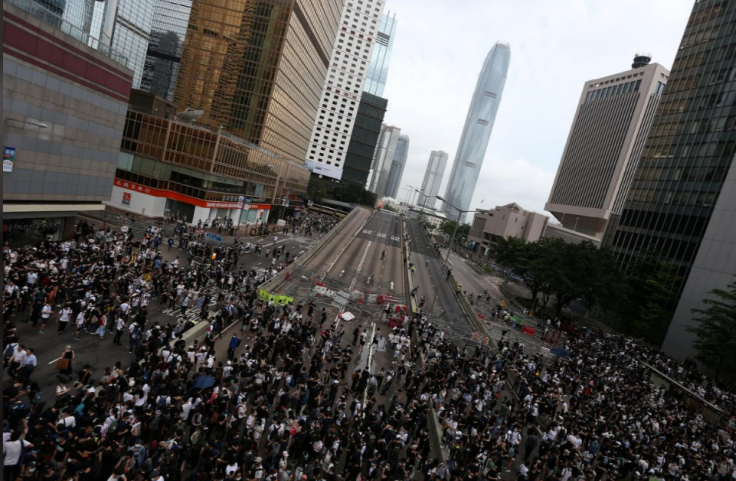The Hong Kong police fired rounds of pepper balls at protesters on Sunday arrested around 300 after the demonstrators took to the streets to oppose the delay of the legislative elections and a new national security law imposed by China. The leader of Hong Kong Carrie Lam delayed the September 6 election for the seats in the financial hub of Asia's Legislative Council for a year in July due to the spike in coronavirus or COVID-19 cases.
The move had a blow to the pro-democracy opposition that hoped for a win with a historic majority in the Council, where only half of the seats are directed elected and the other half are the appointed members who majorly support Beijing. "Today is supposedly our voting day, we need to resist to fight back for our vote," a 70-year-old woman surnamed Wong said as reported by Reuters.
Hong Kong Protests

The poll will have been Hong Kong's first official vote after Beijing imposed new security legislation in late June. The government said that there was no political motive behind the delay. Thousands of police were stationed in the Kowloon peninsula as many marchers chanted slogans like 'liberate Hong Kong'. The slogans are currently banned. According to the police, 298 people were arrested, as reported by Reuters.
Many well-known activists got arrested during the demonstrations including Figo Chan, who is the vice-convenor of the Civil Human Rights Front, and former legislator Leung Kwok-hung, as per a Facebook post. Anti-government protesters have decreased this year mainly due to the limits on group gatherings imposed to curb the spread of the coronavirus and the security law that punishes action China sees as subversive, secessionist, terrorist, or colluding with the foreign forces.
Critics state that the law targets to quash dissent in the city, while the supporters say it will start more stability after a year of often-violent anti-government and anti-China unrest. Hong Kong came back to the Chinese rule in 1997 under a guarantee of autonomy but the critics state that the new law undermines that the promise and puts the territory in a more authoritarian way.
The advocates of the law say it plugs the loopholes in the national security left by the city's inability to fulfill a constitutional need for passing such laws on its own. While the street protests have majorly lost momentum, anti-government and anti-Beijing sentiment stays, with China's offer of mass COVID-19 testing for Hong Kong residents prompting calls for a boycott amid the distrust of the public.
(With agency inputs)








